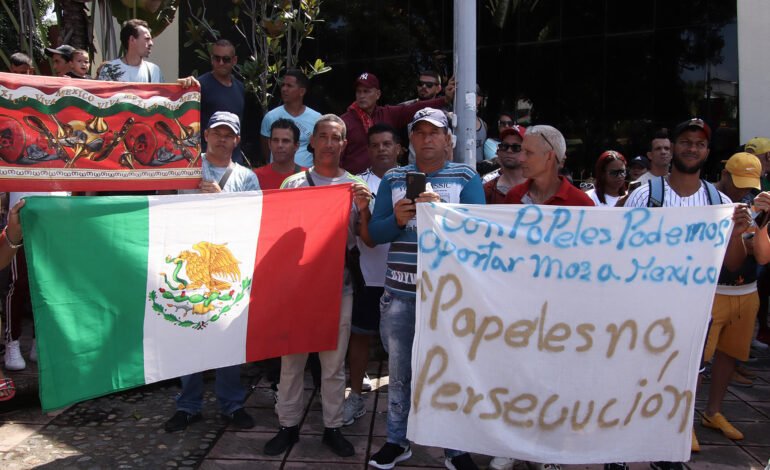Hundreds of migrants, mostly from Venezuela, Haiti, and various Central American countries, are preparing to embark on a new caravan in southern Mexico to demand that authorities regularize their documents. They report that immigration processes are slow, unclear, and, in many cases, vulnerable to corruption.
In Tapachula, a city on the border with Guatemala, thousands of people have been stranded for months awaiting a response from the Mexican Commission for Refugee Assistance (COMAR) and the National Migration Institute (INM). Among them are pregnant women, children, and people with chronic illnesses who have decided to march as a group to make their situation visible and demand dignified treatment.
The recent arrest of activist Luis García Villagrán, known for accompanying caravans and denouncing extortion in immigration proceedings, intensified unrest among migrants. For many, his arrest was interpreted as an attempt to silence criticism of a system that, they say, forces them to pay bribes to access basic documents.
The main demands focus on the provision of humanitarian visas, residence permits, and multiple immigration forms that allow transit through Mexico without risk of detention. Some groups have already managed to obtain humanitarian or permanent residency cards, especially families and vulnerable individuals, but the majority remain trapped in legal limbo. Human rights organizations warn that, without structural solutions, partial measures barely alleviate the crisis.
Official responses and tensions
The Mexican government has offered to expedite the issuance of provisional documents for those participating in the caravan. In several cases, the issuance of permits has led to the groups temporarily disbanding, although doubts remain about the effectiveness and continuity of these agreements. For migrants, regularization is urgent: without papers, they are exposed to arbitrary detention, abuse by authorities, and precarious living conditions in overcrowded shelters.
The situation reflects a larger dilemma. On the one hand, the government seeks to control migration flows and reduce pressure on the northern border; on the other, migrants demand basic rights and the ability to continue their journey without fear. The caravan is not only a protest movement, but also a symbol of resistance against a system that keeps them in uncertainty.
Meanwhile, tensions are growing in southern Mexico. Civil organizations warn that if the root causes of the stagnation are not addressed, new caravans will continue to emerge. The current mobilization is a reminder that migration in the region continues unabated and that temporary solutions will be difficult to stem a dynamic marked by inequality and desperation.
For more stories like this, follow More Latin.
Sources:

